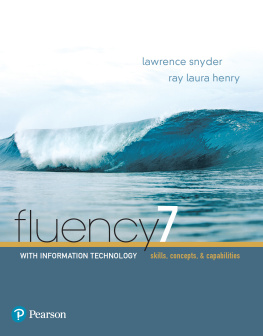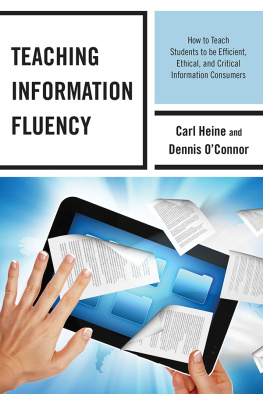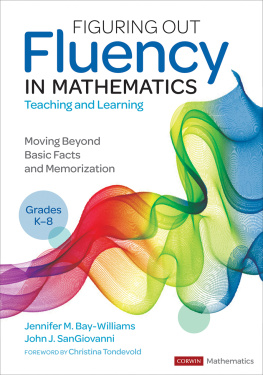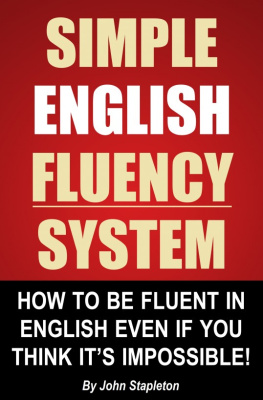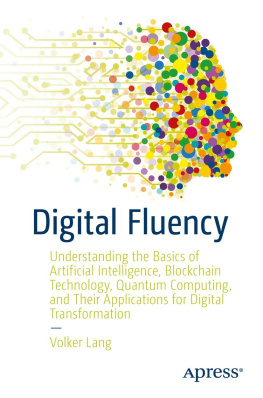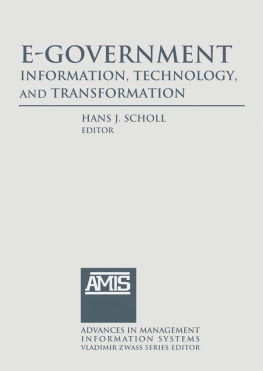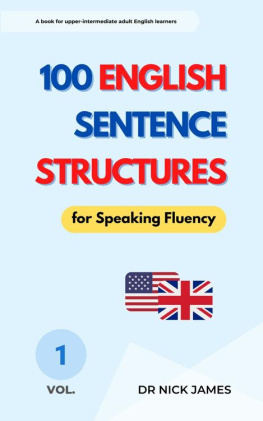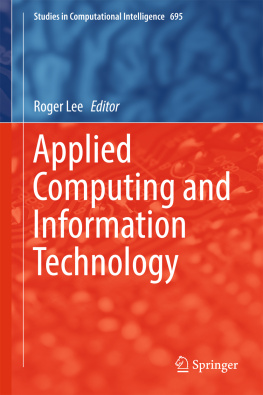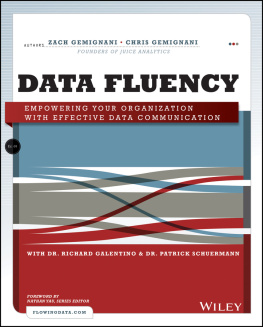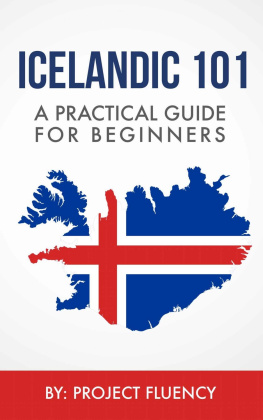Lawrence Snyder - Fluency with Information Technology, 7/e
Here you can read online Lawrence Snyder - Fluency with Information Technology, 7/e full text of the book (entire story) in english for free. Download pdf and epub, get meaning, cover and reviews about this ebook. year: 2017, publisher: Pearson, genre: Romance novel. Description of the work, (preface) as well as reviews are available. Best literature library LitArk.com created for fans of good reading and offers a wide selection of genres:
Romance novel
Science fiction
Adventure
Detective
Science
History
Home and family
Prose
Art
Politics
Computer
Non-fiction
Religion
Business
Children
Humor
Choose a favorite category and find really read worthwhile books. Enjoy immersion in the world of imagination, feel the emotions of the characters or learn something new for yourself, make an fascinating discovery.
- Book:Fluency with Information Technology, 7/e
- Author:
- Publisher:Pearson
- Genre:
- Year:2017
- Rating:5 / 5
- Favourites:Add to favourites
- Your mark:
- 100
- 1
- 2
- 3
- 4
- 5
Fluency with Information Technology, 7/e: summary, description and annotation
We offer to read an annotation, description, summary or preface (depends on what the author of the book "Fluency with Information Technology, 7/e" wrote himself). If you haven't found the necessary information about the book — write in the comments, we will try to find it.
Fluency with Information Technology, 7/e — read online for free the complete book (whole text) full work
Below is the text of the book, divided by pages. System saving the place of the last page read, allows you to conveniently read the book "Fluency with Information Technology, 7/e" online for free, without having to search again every time where you left off. Put a bookmark, and you can go to the page where you finished reading at any time.
Font size:
Interval:
Bookmark:

Skills, Concepts, & Capabilities
Lawrence Snyder
University of Washington
Ray Laura Henry
Orbis Cascade Alliance

Director, Portfolio Management: Engineering, Computer Science & Global Editions: Julian Partridge
Specialist, Higher Ed Portfolio Management: Matt Goldstein
Portfolio Management Assistant: Kristy Alaura
Managing Content Producer: Scott Disanno
Content Producer: Carole Snyder
Web Developer: Steve Wright
Rights and Permissions Manager: Ben Ferrini
Manufacturing Buyer, Higher Ed, Lake Side Communications Inc (LSC): Maura Zaldivar-Garcia
Inventory Manager: Ann Lam
Product Marketing Manager: Yvonne Vannatta
Field Marketing Manager: Demetrius Hall
Marketing Assistant: Jon Bryant
Cover Designer: Joyce Wells
Full-Service Project Management: Surbhi Mittal, Cenveo Publisher Services
Project Manager: Lakeside Editorial Services L.L.C.
Credits and acknowledgments borrowed from other sources and reproduced, with permission, appear on the Credits page in the endmatter of this textbook.
Copyright 2018, 2015, 2013, 2011 Pearson Education, Inc. All rights reserved. Printed in the United States of America. This publication is protected by Copyright, and permission should be obtained from the publisher prior to any prohibited reproduction, storage in a retrieval system, or transmission in any form or by any means, electronic, mechanical, photocopying, recording, or likewise. For information regarding permissions, request forms and the appropriate contacts within the Pearson Education Global Rights & Permissions department, please visit http://www.pearsoned.com/permissions/
Many of the designations by manufacturers and sellers to distinguish their products are claimed as trademarks. Where those designations appear in this book, and the publisher was aware of a trademark claim, the designations have been printed in initial caps or all caps.
The programs and applications presented in this book have been included for their instructional value. They have been tested with care, but are not guaranteed for any particular purpose. The publisher does not offer any warranties or representations, nor does it accept any liabilities with respect to the programs or applications.
Library of Congress Cataloging-in-Publication Data
Names: Snyder, Lawrence, author.
Title: Fluency with information technology : skills, concepts, & capabilities / Lawrence Snyder, University of Washington.
Description: Seventh [edition]. | New Jersey : Pearson Higher Education, 2017. | Includes bibliographical references and index.
Identifiers: LCCN 2016046498 | ISBN 9780134448725 (alk. paper)
Subjects: LCSH: Information technology. | Computer literacy.
Classification: LCC T58.5 .S645 2017 | DDC 004dc22 LC record available at https://lccn.loc.gov/2016046498
1 17

ISBN 10: 0-13-444872-3
ISBN 13: 978-0-13-444872-5
to the Seventh Edition of Fluency with Information Technology: Skills, Concepts, & Capabilities. This book teaches the foundational ideas of computing. Todays students, having grown up in a world in which computers are ubiquitous, know how to use them as an integrated part of their daily lives. But use is not understanding. More than ever, todays students belong to a world that requires them to be computational thinkers, able to conceptualize where and how computation can be used effectively. While not all students will work as programmers, most will be faced with processes to implement or problems to solve where they will need to apply computation skills. To be effective at these tasks, they must understand the fundamental ideas of computing. This is their book.
The seventh edition, like its predecessors, illustrates a fundamental point about Fluency: Though the concepts are constant, their practical manifestations change at warp speed. While the seventh edition retains the fundamental ideas that underlie the Fluency vision, this text has incorporated changes that accommodate how students encounter computation in their daily lives: advances in smartphones, HTML5, CSS3, cloud technology, web accessibility, and more. These affect how students use and perceive the fundamentals. Topics like privacy, security, phishing, AI, copyright, and so forth evolve, and so they must be explained in terms consistent with students current experiences.
The four parts of Fluency have been updated as follows:
Throughout the book, additional Fluency BITs and TryIT exercises have been added, as well as additional glossary terms, supporting both new and existing material.
Web Search to align with current standards.
also has a new interview, and its with one of 2016s Presidential Medal of Freedom recipients, computer scientist and systems engineer Margaret Hamilton.
In lists resources for students interested in trying programming with Python.
In Privacy and Security have been updated to include recent examples of the social benefits and costs of IT, as well as a discussion of two-factor authentication. The Spreadsheets chapters have been revised to use relative cell references where appropriate.
Finally, in adds AlphaGos recent achievements to our discussion of Artificial Intelligence.
Further resources are listed below.
The vision of Being Fluent with Information Technology (see below) is to introduce fundamental computational concepts to college students; implementing that vision was the original purpose of this book. The Computer Science Principles vision is virtually identical, but for high school students. Think of a college Fluency course as the class that successful Advanced Placement (AP) CS Principles students get credit for. It follows that Fluency is a suitable text for CS Principles.
Depending on specific choices of the instructor, the two curricula overlap about 8590 percent in terms of concepts and ideas. Both cover algorithms, digital data and metadata, programming, Internet fundamentals, security and privacy, AI, and so on. The difference is more on emphasis than with content. The courses have been described as
Fluency introduces computing ideas to enhance students ability to apply computation and
CS Principles introduces computing ideas for their scientific richness.
Both are important (and not mutually exclusive) goals; Fluency fulfills both.
To illustrate, recall that the Computer Science Principles curriculum is guided by the Seven Big Ideas [www.csprinciples.org]. The content of Fluencys chapters (sections or possibly the entire chapter) aligns with the big ideas as follows:
Creativity4, 5, 6, 10, 16, 18, 19, 20, 21
Abstraction1, 4, 10, 17, 18, 19, 20, 21
Data7, 8, 13, 14, 15, 16, 17, 22
Font size:
Interval:
Bookmark:
Similar books «Fluency with Information Technology, 7/e»
Look at similar books to Fluency with Information Technology, 7/e. We have selected literature similar in name and meaning in the hope of providing readers with more options to find new, interesting, not yet read works.
Discussion, reviews of the book Fluency with Information Technology, 7/e and just readers' own opinions. Leave your comments, write what you think about the work, its meaning or the main characters. Specify what exactly you liked and what you didn't like, and why you think so.

